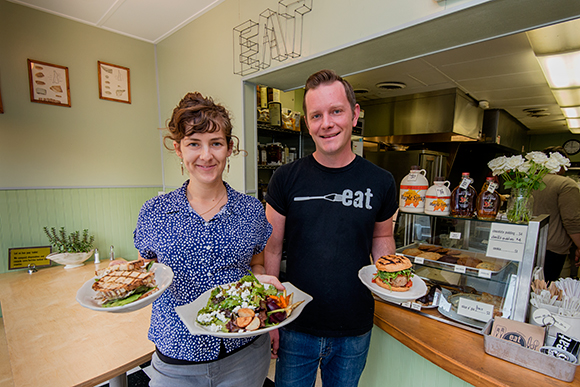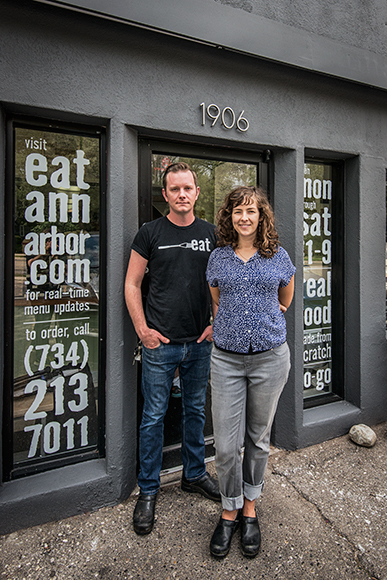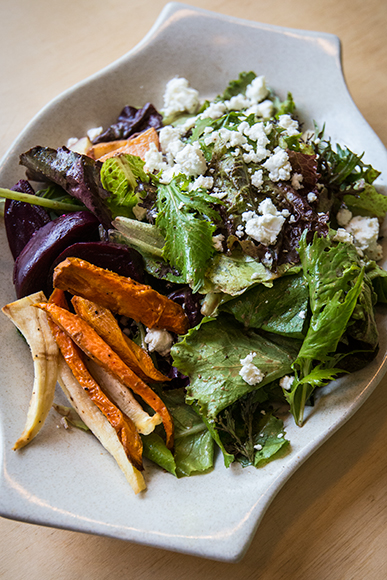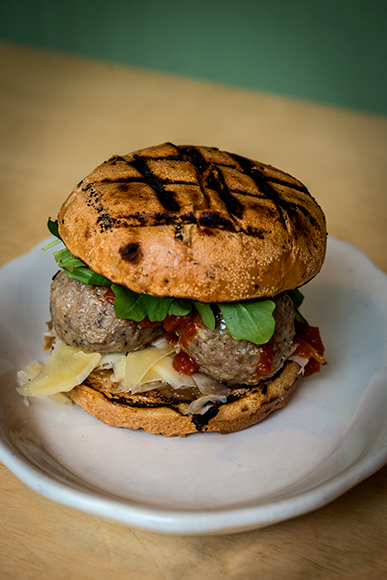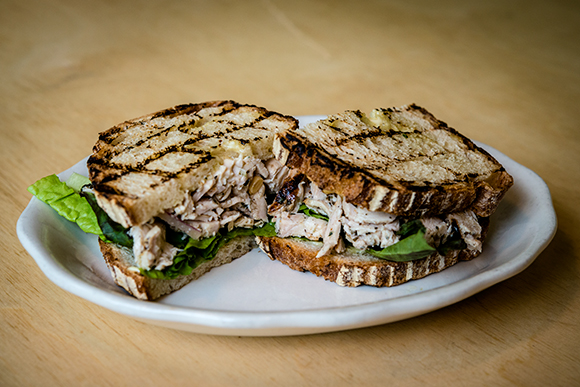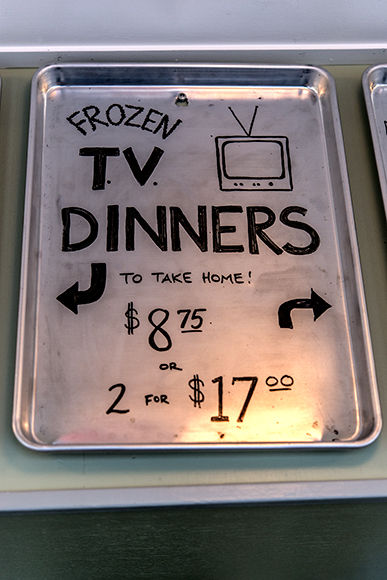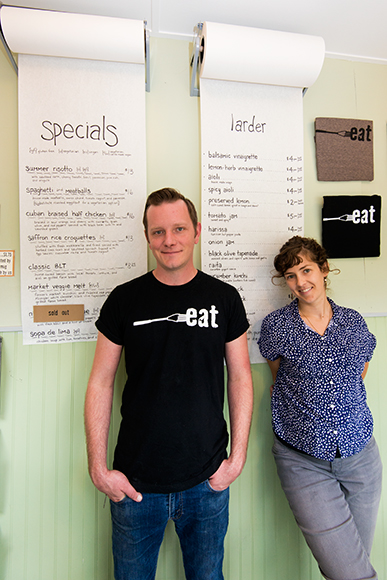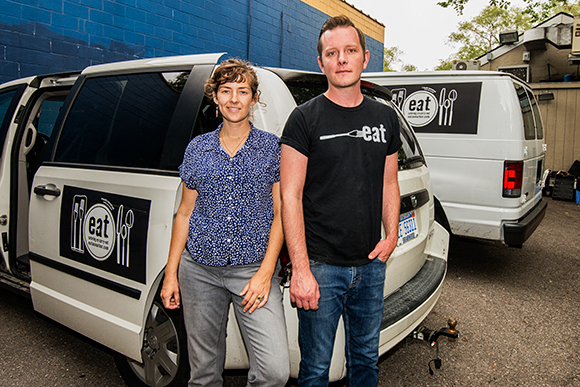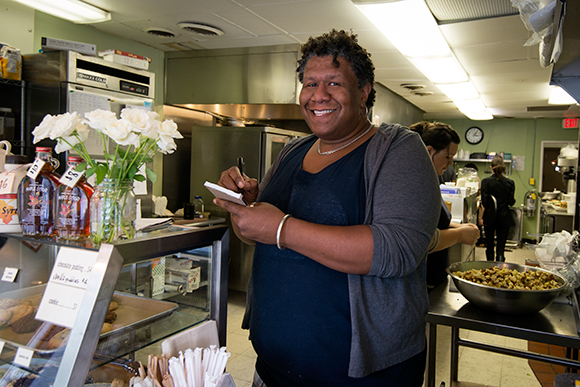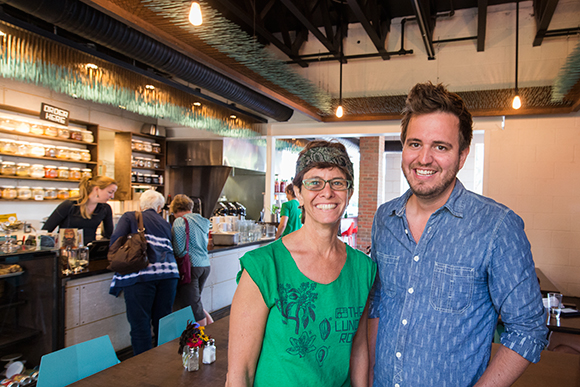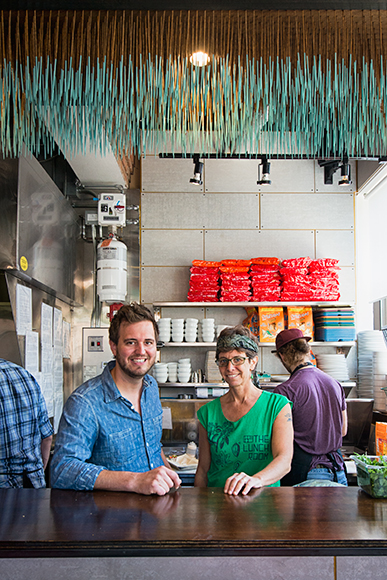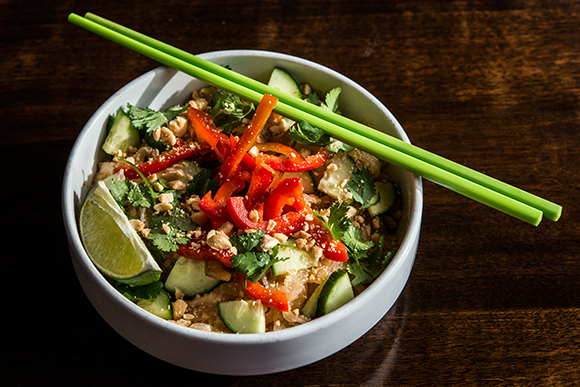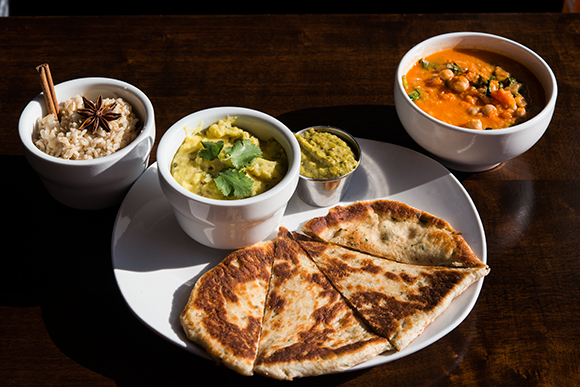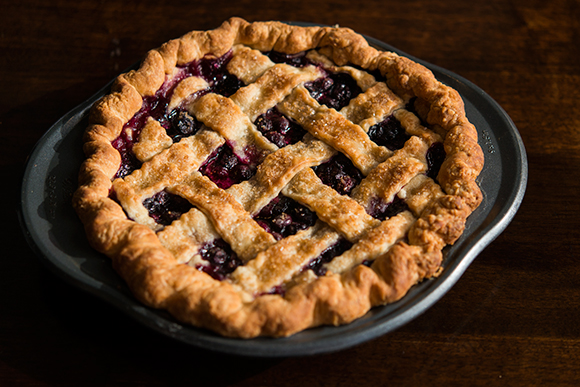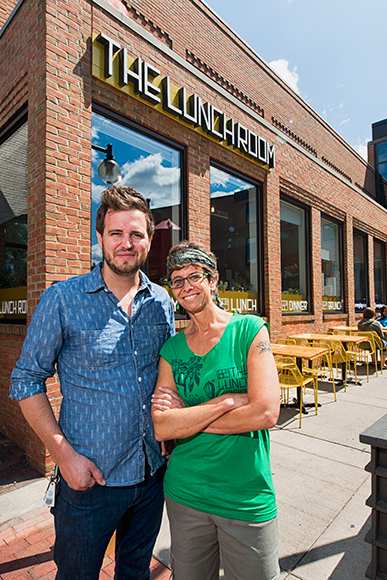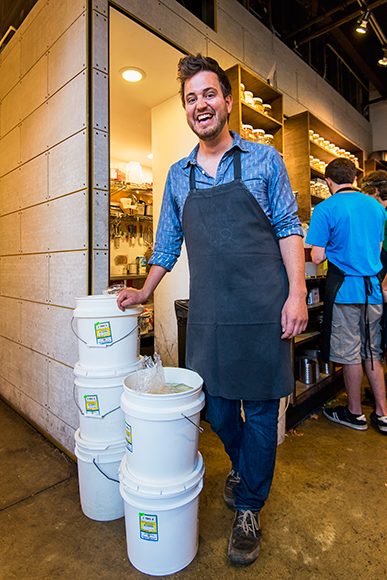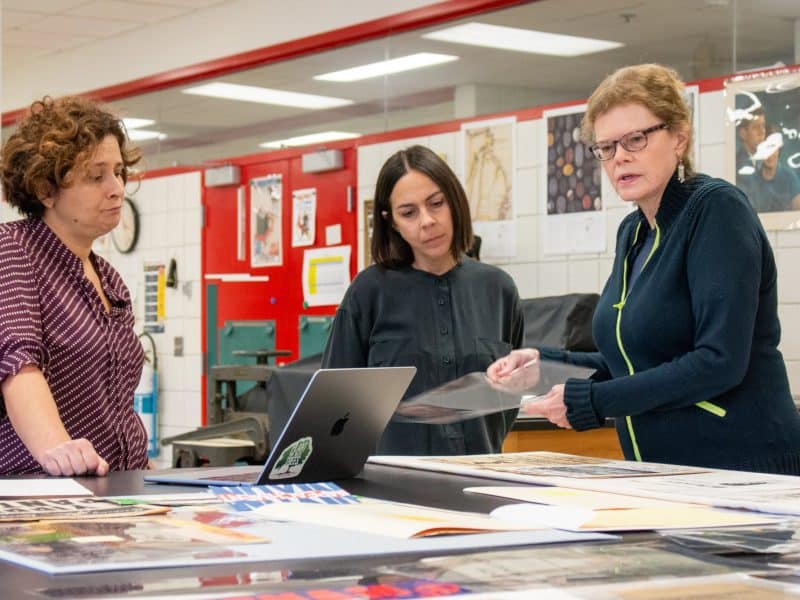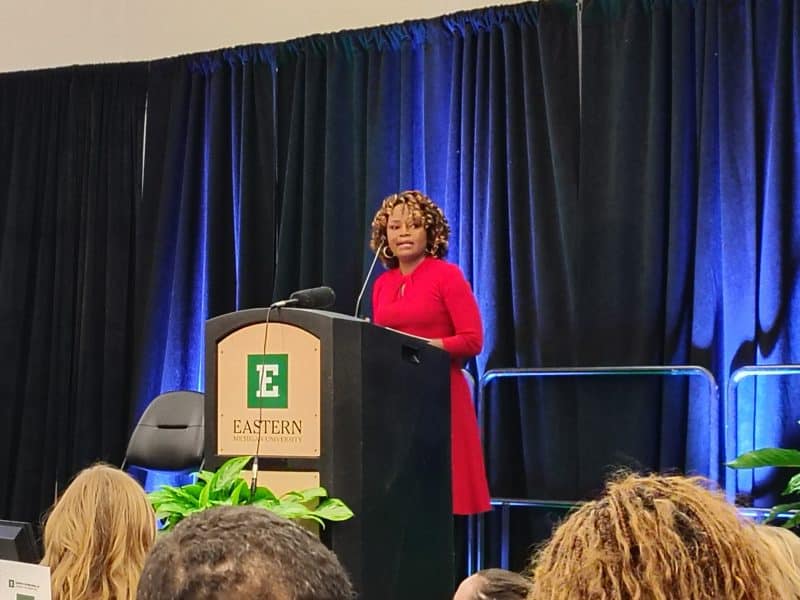From cart to cafe: The evolution of two local food trucks
Though the local food cart movement still remains confined to Mark's Carts in Ann Arbor, that enterprise has seeded the city with two successful brick and mortar businesses: The Lunch Room and eat. Concentrate gets the skinny on how these food entrepreneurs made the leap from cart to café.
It has been more than three years since Mark’s Carts first debuted in Ann Arbor in March 2011, and since we first started to discuss mobile food vending in the city. Food trucks – as in, actual street-mobile roving kitchens on wheels – have yet to find their place in Ann Arbor, but thanks to Mark’s Carts, there is at least a little corner of Tree Town that allows cart-based food vendors to operate.
When we first began discussing the benefits of mobile vending, and why Ann Arbor should embrace this new-ish business model rather than relentlessly block it, we explored how mobile vending is an ideal way to vet a new concept and build up a business before making the significant investment into a permanent brick-and-mortar location. Now we’ll check in with two businesses that got their start as carts and have since transitioned to full-time brick-and-mortar café.
Let’s eat.
eat. catering and carry-out didn’t start with a cart, but their cart allowed them to reach a much larger audience that then followed them to their brick-and-mortar carry-out location on Packard Street.
Helen Harding and Blake Reetz got their start as independent caterers. In order to grow their catering business, they needed to do something that gave them more of a public presence. Both were still working part-time jobs in addition to catering and their marketing budget was, at best, slim.
“The reason we got the cart was because we were kind of at a standstill with our catering,” Harding says. “We didn’t have a public face and you can only do so many donations to get [your business out] in front of people.” The cart was Reetz’s idea, and Harding says he had a hard time convincing her. Ultimately, though, he succeeded, and eat. opened with Mark’s Carts for its first-ever season in 2011 and became a staple at the Ann Arbor Farmers Market.
“That definitely launched us,” Harding says. “That was when we both went full-time self-employed. At the same time when we started the food cart we got into the wedding catering scene, but we were just starting. Those two trajectories for the business took off at the same time.”
By August 2011 they realized they needed a commercial kitchen of their own to work out of for their growing catering business. John Roos of RoosRoast told them about the Packard space, which came partially outfitted with commercial kitchen equipment, and they jumped on it. The space is mostly just a kitchen with a serving counter and extremely limited seating for carry-out orders.
“Because we were just thinking of catering we said, ‘This is perfect,'” says Harding. “We were thinking of a super-limited menu for carry-out but to really focus on the catering and let the carry-out run itself.”
They figured that since they had the kitchen they might as well serve out of it, that it would be “gravy on top of the catering.” Three years later, their business is half catering and half carry-out. They do a brisk dinner business – another surprise to them – and every single year their business grows.
“We had a handful of people who loved our cart who would seek us out at the farmers market [and Mark’s Carts], and they continue their loyalty here,” Harding says. “People have definitely linked the cart with the retail space and followed it. Because we had a year of doing the food cart, we got our name out to more people.”
Each year eat. further solidifies its identity as a reliable caterer with good food and also a reliable carry-out spot with affordable, homemade, healthful (as in well-sourced and thoughtfully prepared) food.
“When we started the cart both of us had worked in the restaurant industry and we were really excited to actually sell food to our friends and people like us who could only afford an $8 sandwich as opposed to $32 per person catering,” Harding explains. “That’s what’s nice about having the carry-out location – we can do so much more than [with] the cart. People can come here who can’t afford a $5,000 catering bill but can afford to come in for dinner and take it to the park for a picnic, [or take it home to their families].”
Because they were already accustomed to catering events for upwards of 200 people, scaling up wasn’t much of an issue for Harding and Reetz. The biggest challenge came in trying to predict customer demand and order and prep food accordingly.
“When we first opened we had no idea how many people to expect,” Reetz says. “With catering we know exactly how many people we’re serving. Now have pretty good grip on it – how much food to prep, how much to buy, how many people we’re going to have [come through the door].”
Reetz also says that predicting what customers would want and when was a challenge initially. At first they thought their biggest business would be lunchtime, only to find out that they were busier during dinner and had to adjust their hours accordingly. For Harding, growing from a staff of two or three part-timers to having 13 people on payroll, five of which are full-time, plus on-call catering staff has been a big but welcome adjustment.
“We provide a place to work that’s fun and give them a decent wage,” Harding says. “I had a couple of great jobs when I was younger where I really felt at home, and we try to foster that kind of community here. It’s really a team effort. The business feels so far beyond just Blake and I; now we have 15 other people who are in it with us, caring a lot, working elbow to elbow, coming up with cool menu ideas. It’s fun to have this collaborative [environment].”
With their success and continued growth over the last three years, Harding and Reetz have talked about possibly having a sit-down café, or get a full warehouse kitchen to really grow their catering. Or, possibly, both. “Someday we’ll do that,” Reetz says. “Which way that will go, we don’t know!”
Let’s do lunch!
The second graduate of the Mark’s Carts de facto business incubator program was The Lunch Room, which just celebrated one year in its brick-and-mortar café in Kerrytown. The one-hundred-percent vegan restaurant first operated as a pop-up concept and then as a food cart before finally opening their permanent location last summer.
“We started brainstorming during our second season [at Mark’s Carts] about what is next, what does this look like,” says co-owner Joel Panozzo. “We started working with a realtor in July 2012 to look for a brick-and-mortar space.”
It took them eight months to find the space in Kerrytown that they now call home. “We spent every single day looking. Moving from a food cart to a brick-and-mortar location, one of the most difficult hurdles to get over was actually finding a retail space to function out of.”
As Panozzo describes it, Ann Arbor does not have the glut of available retail spaces that a city like Detroit has. Of the commercial spaces available, the vast majority of them don’t have a commercial kitchen – something that could cost $100,000 or more to build out and equip.
“The scene in Ann Arbor isn’t necessarily the friendliest place for startup restaurants,” he says. “It was incredible to find a space where the landlords actually cared what type of tenant actually went in there. They didn’t want to spend their time on a tenant that wouldn’t make it through their first year, and they spent a lot of time on the design for a long-term tenant.”
Panozzo says the café was a just twinkle in their eyes, something that they thought they might open someday. It wasn’t long, however, before their food cart customers started asking them when they would open a café.
“We were thinking there would be some type of demand for it,” he says. Both he and business partner Phillis Engelbert were vegan and knew how difficult it was to find good vegan meals in Ann Arbor. “We are still only the fifth vegetarian restaurant in all of Washtenaw County.”
He says The Lunch Room’s food cart was a testing ground, and that they knew then that they needed to build a community around their food. Panozzo had a background in marketing and advertising, while Engelbert’s background was in nonprofit management. “With those experiences combined, we created this community of folks that are attached to our business. It was more than just a food cart.”
The biggest challenge of transitioning from cart to café was scaling up their food production to meet the increased demand of a sit-down space with a significant increase in hours of operation. “We have a very small kitchen, a very small walk-in, a very small pantry, and a very small food prep area,” Panozzo says. “When you sell all this food and have to prep it all over again you can’t just throw more labor at it because we don’t necessarily have the room for more warm bodies.”
Staffing and labor was a totally different issue. Running the food cart mostly involved he and Engelbert taking on the lion’s share of the hours with maybe a couple of others to fill-in. Jumping to a brick-and-mortar space and opening with 24 people on payroll would require a whole new set of management skills. Panozzo explains that trying to schedule everyone while not knowing how many staff members would be needed for any given meal periods and then adjusting to demand was a stressful learning experience. “That’s an incredible jump, to go from three casual laborers to 24 people on payroll making a living wage.”
Now, after a full year of operating in the Kerrytown location, The Lunch Room has plenty of days when they don’t have enough space to seat everyone. Panozzo says customer demand for their food exceeds their production capacity – good problems to have. “It’s everything that I’d hoped for and more,” he says. “It exceeded both of our expectations. Our sales projections are higher than we both expected. We already exceeded our sales projections for 2014.”
Currently the duo are in the process of applying for a liquor license, and hope to be serving drinks in the coming weeks.
Because he had only limited restaurant industry experience and Engelbert had none at all, he says they are definitely glad they started with the cart first. “We were a community organizer and a graphic designer going [into this],” he says. “We enjoyed making food and having surprising food as our concept. The food cart created this community that then jumped to the brick-and-mortar.”
Nicole Rupersburg is a freelance writer extraordinaire. She is primarily known for her former blog, Eat It Detroit.

